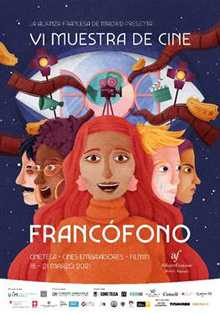Enrique Miguel Sánchez Motos
Senior Civil Servant
Every politician is worried about elections, particularly those who feel they have something, little or a lot, to lose, either because they were in power or because of their electoral expectations. This is normal. What is not normal is when there is a diffuse and profuse fear, as is happening now in the face of the future elections in Madrid. The PP is afraid of being overtaken by VOX or even of having to govern. VOX is worried because, although its expectations are good, it is afraid that some of its voters, current or potential, will opt for the PP because of a theoretical useful vote. The PSOE is afraid because if a center-right coalition were to continue governing in Madrid it would be a kick in the face to Sánchez’s national policy. Ciudadanos is no longer afraid but terrified, not only because of its vacillating policy but also because it has betrayed its partner, the PP, in Murcia, with arguments that are laughable because they are so contradictory. Podemos is afraid because the marquis of the casoplón sees that many of his traditional faithful are going to abandon him or at least abstain. In short, in Madrid there is a generalized panic, too generalized, in the political world. What is the main reason?
In my opinion, the lack of division of powers, the fusion-submission between the Legislative and the Executive is the main cause. If instead of the President of the Community being elected by the Assembly, he were elected directly by the people of the Community of Madrid, there would be less fear. The Assembly and its deputies would remain until elections were held; the newly elected president would change the members of his Executive and that would be it. On the other hand, there is no doubt that his election, in the first or second round, by majority vote, would have an unquestionable legitimacy before the citizens of the Community, although he would have to submit, in the exercise of his power, to the framework of rules established by the Legislative of the Community. Political stability would be much greater, although it would be difficult to cohabit, since it would have to be established for fixed periods. Only in very specific circumstances could the dissolution of the Assembly be allowed, only once in the whole period of four years, for example if the budgets proposed by the President of the Community were not approved within six months. It would also be possible to call new presidential elections, once only, when proposed by 60% of the deputies of the Assembly. It is foreseeable that with these limitations, the exercise of such limited circumstances would be very scarce.
If to this were to be added the requirement that the elections be held by constituencies by population zones, the possibilities for the parties (the executive) to draw up the lists of candidates would be very limited and a relationship of submission of the candidates appearing on the lists to the leadership of the party apparatus would not be established, as is the case at present. With this type of modifications, or others in the same direction, the current strong dependence on the candidates would be avoided, the Legislative-Executive fusion would be broken, the number of politicians in the apparatus would be reduced and democracy would be reaffirmed, since the Executive would be exercised by whoever is elected by the majority. The current political system is a failed system that has liquidated the necessary division of powers, that gives rise to a generalized panic before electoral processes, that does not contribute to stability and that transfers the sovereignty of the people to the sovereignty of the parties.
© All rights reserved





